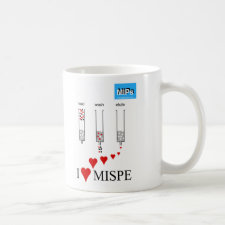
Authors: Altintas Z, Takiden A, Utesch T, Mroginski MA, Schmid B, Scheller FW, Süssmuth RD
Article Title: Integrated Approaches Toward High-Affinity Artificial Protein Binders Obtained via Computationally Simulated Epitopes for Protein Recognition.
Publication date: 2019
Journal: Advanced Functional Materials
Volume: 29
Issue: (15)
Article Number: 1807332.
DOI: 10.1002/adfm.201807332
Abstract: Widely used diagnostic tools make use of antibodies recognizing targeted molecules, but additional techniques are required in order to alleviate the disadvantages of antibodies. Herein, molecular dynamic calculations are performed for the design of high affinity artificial protein binding surfaces for the recognition of neuron specific enolase (NSE), a known cancer biomarker. Computational simulations are employed to identify particularly stabile secondary structure elements. These epitopes are used for the subsequent molecular imprinting, where surface imprinting approach is applied. The molecular imprints generated with the calculated epitopes of greater stability (Cys-Ep1) show better binding properties than those of lower stability (Cys-Ep5). The average binding strength of imprints created with stabile epitopes is found to be around twofold and fourfold higher for the NSE derived peptide and NSE protein, respectively. The recognition of NSE is investigated in a wide concentration range, where high sensitivity (limit of detection (LOD) = 0.5 ng mL-1) and affinity (dissociation constant (Kd) = 5.3 - 10-11M) are achieved using Cys-Ep1 imprints reflecting the stable structure of the template molecules. This integrated approach employing stability calculations for the identification of stabile epitopes is expected to have a major impact on the future development of high affinity protein capturing binders
Template and target information: protein, peptide, epitope, neuron specific enolase, NSE
Author keywords: artificial protein binders, Cancer markers, computationally simulated epitopes, molecular imprinting, protein recognition



Join the Society for Molecular Imprinting

New items RSS feed
Sign-up for e-mail updates:
Choose between receiving an occasional newsletter or more frequent e-mail alerts.
Click here to go to the sign-up page.
Is your name elemental or peptidic? Enter your name and find out by clicking either of the buttons below!
Other products you may like:
 MIPdatabase
MIPdatabase









